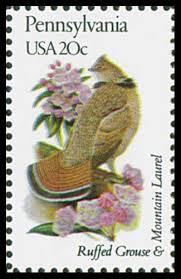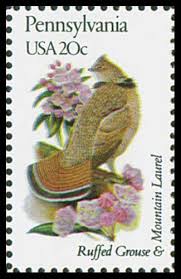Pennsylvania State Senators Formally Introduce SB900 Online Gambling Bill
Four Pennsylvania state senators have followed up last week’s memorandum announcing the introduction of an intrastate-regulating online gambling measure by formally introducing that measure in advance of an important state Senate hearing on the topic yesterday.
 The bill, SB900, would legalize all forms of online gambling in the state, in contrast to a couple of online poker-only bills also under consideration in the state. SB900’s primary sponsor is PA State Sen. Kim L. Ward (R, 39th District). Five other senators have already signed on to the measure as co-sponsors – Robert L. Tomlinson (R, 6th), Elder A. Vogel Jr. (R, 47th), Joseph B. Scarnati III (R, 25th; Scarnati is the state Senate’s president pro tempore), Camera Bartolotta (R, 46th), and Patrick J. Stefano (R, 32nd).
The bill, SB900, would legalize all forms of online gambling in the state, in contrast to a couple of online poker-only bills also under consideration in the state. SB900’s primary sponsor is PA State Sen. Kim L. Ward (R, 39th District). Five other senators have already signed on to the measure as co-sponsors – Robert L. Tomlinson (R, 6th), Elder A. Vogel Jr. (R, 47th), Joseph B. Scarnati III (R, 25th; Scarnati is the state Senate’s president pro tempore), Camera Bartolotta (R, 46th), and Patrick J. Stefano (R, 32nd).
Though SB900 is an omnibus measure dealing with numerous gambling topics in Pennsylvania, the bill now includes specifics regarding exactly how the half-dozen state Senators propose regulating online gambling in the Keystone State.
SB900 would add a new “Section 13B” to Pennsylvania’s gambling codes under the title “Internet Gaming.” The bill’s specifics include the following:
- License eligibility is open only to those state-licensed entities who already possess a valid Class 1 or Class 2 slot-machine or table-games license – meaning only the state’s land-based casinos.
- Third-party software or system vendors will be allowed, but are subject to suitability reviews conducted by the Pennsylvania State Gaming Board.
- Internet gaming permits will require an initial licensing fee of $10 million, and will be good for five years. (Applicants will also be responsible for reimbursing the state for application-related review expenses.)
- Annual renewals after the initial five-year period would be done on a rolling basis, with a $1 million/year rolling fee.
- Age 21 minimum for players wishing to play on any authorized sites.
- Players must register their initial accounts in person at an appoved casino/gaming facility, unless they live more than 20 miles away. (Given the arbitrary nature of that exception, look for it to be modified somewhere down the road.)
- Player accounts must be maintained by individuals only, and not by “any beneficiary, custodian, joint trust, corporation, partnership or other entity.”
- Players must be located within the state to play, and geolocation services to ensure compliance will be employed.
- Inactive player accounts that have been dormant for a year or longer will be subject to closure, with any funds remaining therein essentially ceded to the state.
- Dictates that Pennsylvania residents who wager on unauthorized sites will have committed a third-degree misdemeanor. Several US state- and federal-level bills have attempted to include such player penalties where none have existed prior the consideration of regulatory bills.
- Unauthorized sites themselves are also defined, and would be subject to a fine of $50,000 per violation.
Here’s the weirdest inclusion, in this writer’s opinion:
- “Each permittee shall pay to the department a tax on daily gross facility gaming revenue of 54% of its gross Internet gaming revenue.”
- No specific “bad actor” clauses. None are really needed, either, since secondary vendors and software providers are subject to Gaming Board approval.
Seriously, a 54% tax? And on gross gaming revenue (GGR), not net? This is so bizarre one wonders if it could have been a typo, if not a secret poison pill designed to scuttle momentum for the bill.
Consider: The tax rate in neighboring New Jersey, where online gambling is already available, is a combined 17.5% of GGR. That consists of 15% payable to the state and 2.5% payable into a casino reinvestment development fund. Overseas, tax rates of 20% or more are considered extreme — France being a prime example — and have been shown to be a deadening factor on revenue and market growth.
54%, in that context, is just bizarre. It’s even worse if one considers that the $10 million initial licensing fee is not considered to be an advance against taxes, but is instead a separate fee.
Such a tax rate, if it remains part of this bill, will be a deal-killer. None of the online casinos will even bother to develop products for the Pennsylvania market should it remain part of the bill.




















COMMENTS